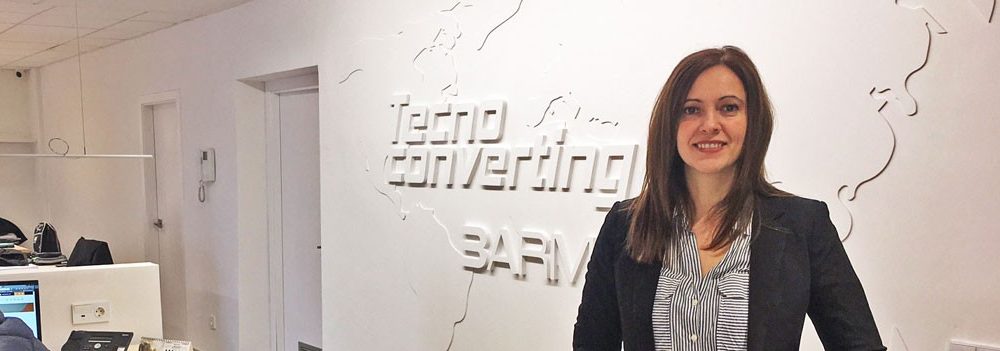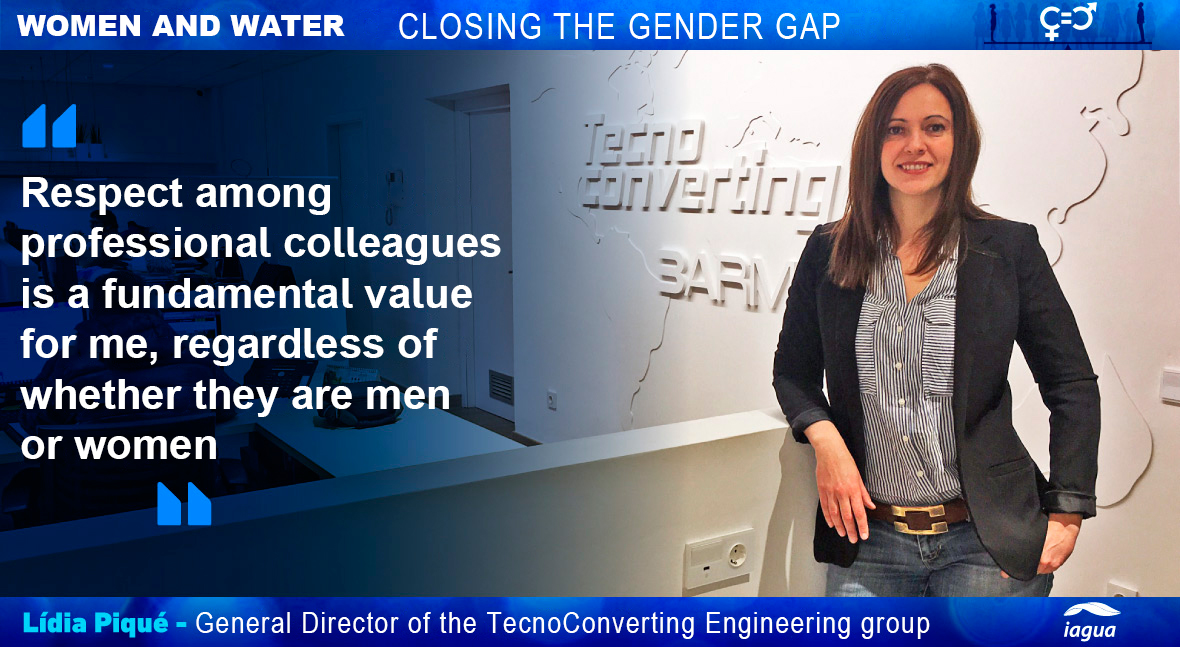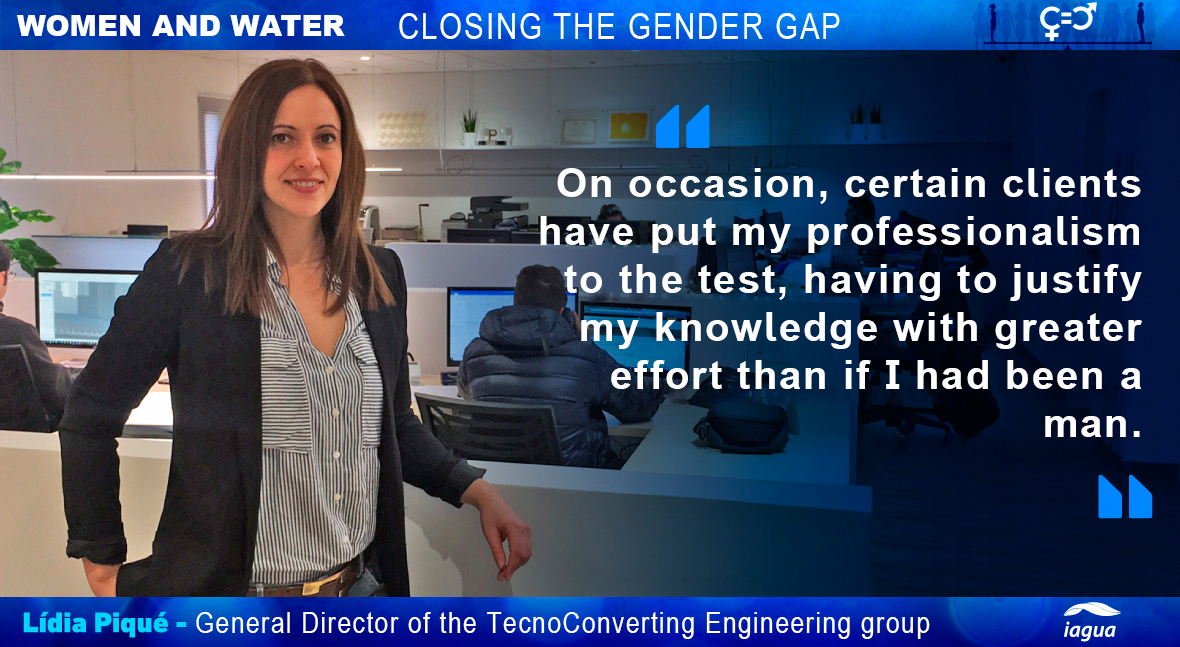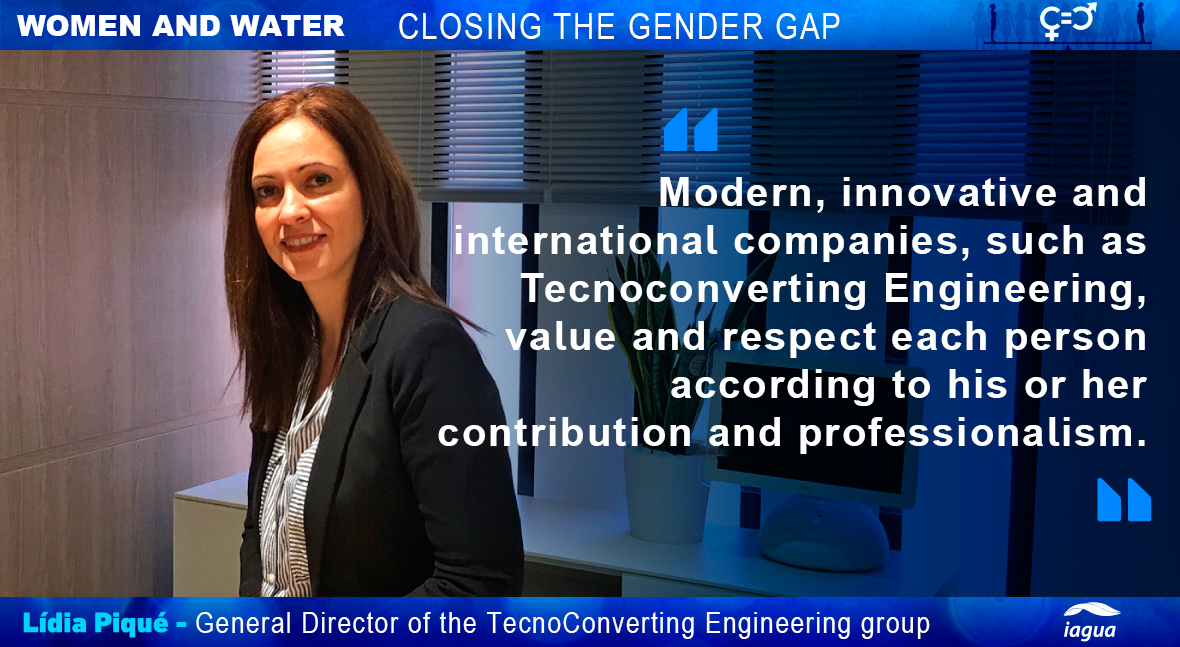
Lídia Piqué: “I feel that the gender gap is more evident in managerial positions”
posted in News by TecnoConverting
In the latest interview of the ‘Women and Water ‘ cycle, the General Manager of the TecnoConverting Engineering group, Lidia Piqué shares her vision about the gender gap in the water sector.
Question – First, we would like to know the details of the path that led you to the position you currently hold.
Answer – I received most of my training in Business Management and Marketing at the University of Barcelona. After working in the family business for several years, I became manager of a Barcelona-based boiler company at the age 23. This company eventually merged with TecnoConverting Engineering. We had all the tools, machinery and professional technicians to work with carbon steel and stainless steel, while TecnoConverting Engineering had the engineering and the R&D in the field of water treatment, so the union was a perfect one to manufacture the equipment that we were designing ourselves.
There are more and more women engineers, as well as plant managers
I am currently General Manager of the TecnoConverting Engineering group, which has branches in Portugal and France.
Q– The water sector is still witnessing a major gender gap. Where do you think this problem comes from?
A– The truth is that I, personally, have not suffered that much from it. There are more and more women engineers, as well as female plant managers. There are also more and more men in purchasing, logistics or administrative departments. To me, the gender gap might be more obvious in managerial positions. However, I never felt that I was receiving a more condescending or different treatment than my male colleagues just for the fact of being a woman. Of course, this is only my personal opinion based on my own experience.
Q– Does TecnoConverting have programs and/or tools to promote gender equality and close the gap?
A– I believe that modern, innovative and international companies such as TecnoConverting Engineering value and respect each person according to his/her contribution and professionalism. For this reason, we do not have any specific program, because we have very clear values in this regard.
Many companies and sectors still hold old-fashioned values. These should clearly consider taking measures to move forward and become more gender-equal entities.
Q– In your opinion, which other measures (beside those already contemplated by companies) could be effective in achieving gender equality in the water sector?
A– We clearly live in a society with plenty of male chauvinists and obviously many companies and sectors still hold old-fashioned values. These should consider taking measures to move forward and become more gender-equal entities. In the water sector, I personally have not experienced so much inequality. I also think that it might be slightly difficult for companies with such mentalities to modernize when the State’s own regulations actually mark these differences, as it is the case with salaries for instance.
Q– Based on your own experience, what difficulties have you encountered throughout your career because you were a woman?
A– One of the situations where I found some kind of inequality was in my time as manager of the boiler company. As it is a deeply masculine world, some clients have put my professionalism to test just because I was young and I was a woman so I had to justify my knowledge with more effort than if I had been a man. In the end, these are particular situations and you cannot let them affect you. You have to be professional at all times.
Q– What other challenges do you think need priority addressing in the sector?
I believe the judgment must be made according to one’s knowledge and contribution to projects, and not according to the gender.
A– If we are talking about other challenges than the matter that concerns the water sector, I think that there has been a major evolution in many regards, but there are always new challenges to overcome. I believe that Spanish companies are world leaders in terms of water treatment and we have to continue working hard to remain leaders.
Q– In contrast, what do you think are the greatest achievements of the sector?
A– For me, respect between colleagues of the same profession is a fundamental value, regardless of whether they are men or women. Personally, I have always liked the degree of respect and collaboration present in this sector. I believe judgment must be made according to our knowledge and contribution to projects, and not according to our gender.



